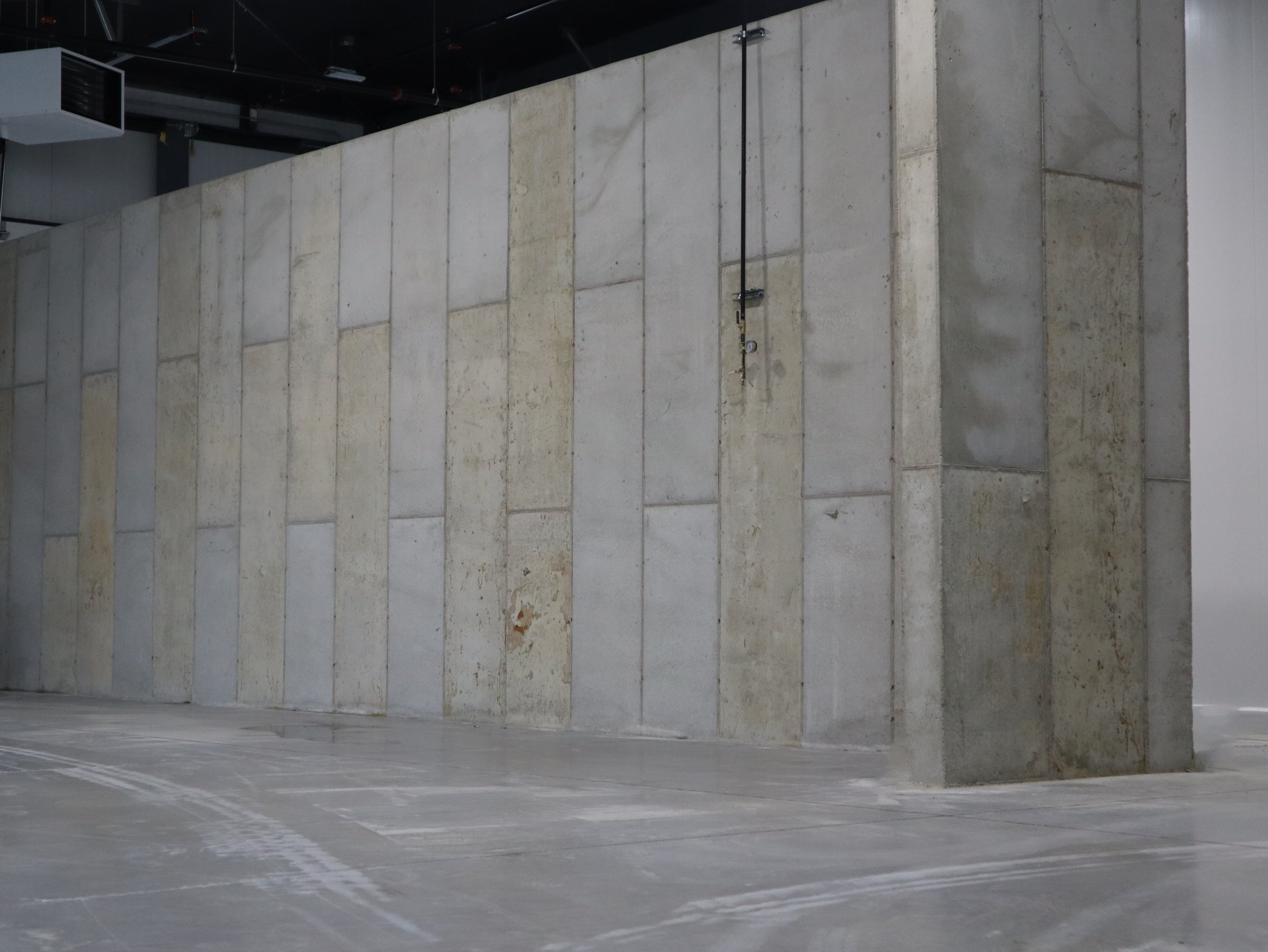Architectural Concrete: Blending Strength with Aesthetics
Concrete has always been known as one of the most durable and versatile building materials. From sidewalks to skyscrapers, it forms the foundation of modern infrastructure. But in recent decades, concrete has evolved far beyond the purely functional. Enter architectural concrete, a material that combines the strength and resilience of traditional concrete with beauty, texture, and design flexibility.
At Evenson Concrete Systems, we understand that today’s projects demand more than structural integrity. Clients want spaces that look as good as they perform. That’s why architectural concrete is at the heart of so many modern commercial, institutional, and residential builds.
In this blog, we’ll explore what architectural concrete is, why it’s so important, its advantages, and how it’s transforming both interior and exterior spaces.
Inside the Blog:
What Is Architectural Concrete?
The Benefits of Architectural Concrete
Applications of Architectural Concrete
Architectural Concrete Finishes: Options That Elevate Design
Architectural Concrete in Action: Creating Lasting Impressions
Why Partner with Evenson Concrete Systems?
What Is Architectural Concrete?
Architectural concrete is concrete that serves both structural and aesthetic purposes. Unlike standard concrete, which is often hidden beneath finishes or paint, architectural concrete is designed to remain visible. Its appearance is carefully crafted through techniques like:
Form liners to create patterns and textures
Colored concrete using integral pigments or surface stains
Exposed aggregate finishes to reveal decorative stones
Polished concrete for sleek, reflective surfaces
Stamped concrete to mimic brick, stone, or tile
By balancing form and function, architectural concrete transforms a simple structural element into a design feature.
The Benefits of Architectural Concrete
1. Durability and Longevity
Concrete is one of the strongest materials in construction. Architectural concrete retains all the resilience of structural concrete while adding a unique finish. This makes it ideal for both high-traffic interiors and weather-exposed exteriors.
2. Cost-Effectiveness
Because the finish is integrated into the structure itself, architectural concrete often reduces the need for additional surface treatments like drywall, paint, or cladding. Fewer materials mean cost savings.
3. Design Flexibility
Architectural concrete can take on virtually any form, texture, or color. Designers and architects can achieve everything from minimalist smooth surfaces to intricate patterns that mimic natural stone.
4. Low Maintenance
Properly sealed architectural concrete requires minimal upkeep compared to alternative materials like wood or tile. Its surface resists moisture, stains, and heavy wear.
5. Sustainability
Concrete is highly sustainable when designed properly. By reducing the need for extra finishing materials and lasting for decades, architectural concrete aligns with green building practices and LEED certification standards.
Applications of Architectural Concrete
One of the most exciting aspects of architectural concrete is its versatility. At Evenson Concrete Systems, we see it being used in an array of applications, including:
Commercial Buildings
Polished concrete floors in office lobbies
Decorative walls in retail stores
Stamped walkways around restaurants and hotels
Institutional Spaces
Universities and schools incorporating exposed aggregate plazas
Hospitals utilize smooth, polished concrete floors for hygiene and durability
Museums featuring textured wall panels as design elements
Public Infrastructure
Bridges and retaining walls with decorative form liner finishes
Sidewalks, plazas, and cityscapes using stamped and colored concrete
Transit stations that highlight both resilience and visual appeal
Architectural Concrete Finishes: Options That Elevate Design
Oxbow Park | Olmsted County, Minnesota
Polished Concrete
Smooth, reflective, and highly durable—polished concrete is popular in both commercial and residential projects. It provides a sleek, modern look while resisting heavy foot traffic.
Exposed Aggregate
By removing the surface layer, the natural beauty of aggregate (stone, glass, or other materials) is revealed. This creates a textured, slip-resistant surface perfect for outdoor plazas, patios, or walkways.
Stamped Concrete
Stamped concrete mimics the appearance of brick, tile, wood, or natural stone, offering a cost-effective alternative that still delivers aesthetic appeal.
Colored Concrete
Pigments or stains transform concrete into a canvas of possibilities. From subtle earth tones to bold colors, designers can match any brand, environment, or vision.
Form Liners and Textured Finishes
Architects can design walls and panels with patterns, geometric shapes, or artistic motifs—making concrete more than a building material, but also a work of art.
Architectural Concrete in Action: Creating Lasting Impressions
The true power of architectural concrete is in how it transforms spaces. Imagine walking into a university campus where the plaza’s textured surfaces invite gathering, or stepping into a sleek office with polished concrete floors that mirror the energy of the business.
At Evenson Concrete Systems, we’ve worked on projects where architectural concrete wasn’t just a finish, it was the focal point. These surfaces withstand decades of use while continuing to look modern and relevant.
Why Partner with Evenson Concrete Systems?
Not all concrete is created equal. At Evenson Concrete Systems, we bring decades of experience in concrete innovation. Our team understands the balance between engineering precision and creative design.
When you partner with us, you gain:
Expertise in architectural finishes – from polished floors to textured exteriors
Custom solutions tailored to your project’s unique vision
Commitment to safety and quality backed by industry standards
A partner that understands both aesthetics and performance
We take pride in helping architects, designers, and builders bring their ideas to life through concrete that makes a statement.




